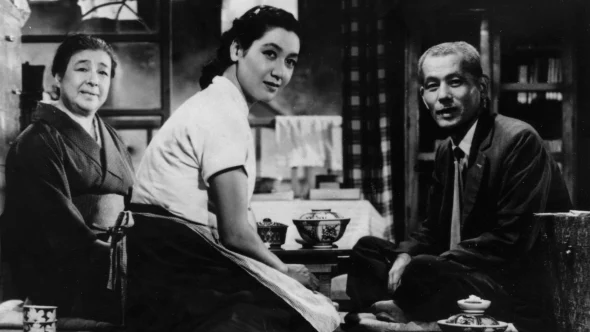
Deepa Mehta is the director behind the Oscar-nominated international feature Water. Her latest, Funny Boy, is available on Netflix beginning Dec. 10.
Devi, Tokyo Story, The White Ribbon, The Garden of the Finzi-Continis, Daughters of the Dust—I look at the titles and the first thing that comes to mind is, “What an eclectic bunch of films!” All made by filmmakers from different parts of the world, at different periods in their illustrious careers, dealing with totally different stories. Strangely, they all have a very strong thematic thread that runs through their obvious disparity: the theme of loss. Each film deals in its own way with the void, the ache caused by losing identity, dignity, homeland, life and perhaps, most poignantly, the perception we have of ourselves.

Satyajit Ray is my hero. One of the greatest humanist filmmakers of all time. I first saw Devi when I was about 14 and was just becoming aware that India was perhaps a patriarchal society. Of course, I was probably not even cognizant that the word “patriarchy” existed, but I did know and see that in our small city of Amritsar in northern India, men called the shots and women acquiesced to their wishes. Devi is a film about Dayamoyee, a young bride who is left with her in-laws while her husband goes to the big city to study further. Her father-in-law, a rich landlord, and a very loving one to boot, has a dream that his daughter-in-law is an incarnation of a goddess (Devi means “goddess”). So he starts treating her like one, and the rest of the household follows the dictates of this powerful man. Dayamoyee starts getting worshipped as if she were a deity. The price the innocent 16-year-old young girl pays because of the whimsy of a powerful man is, of course, huge. The loss of potential and, tragically, the loss of a “normal” life that will forever elude young Dayamoyee is heartbreaking.

I saw A Tokyo Story, a film by another humanitarian master, Yasujiro Ozu, at the Max Mueller Bhavan in New Delhi in my first year of university. After the screening, I remember sitting at the curb of Janpath bawling my eyes out. A Tokyo Story is a Japanese film from the 1950s about an older couple who travels to Tokyo to spend time with their children, but they are instead totally involved with their own lives and both ungrateful and indifferent to their parents. To me, it’s a film that’s so relevant, especially in today’s day and age when it is so easy to take our loved ones for granted and remain busy with our own lives. More recently, this relevance has increased through what we’re all going through during this pandemic. It has caused many of us to reevaluate our lives and priorities, and truly realize the value of the time we have with those who care for us. A Tokyo Story is, for me, about the loss of kinship. Blood is not always thicker than water.

Julie Dash’s Daughters of the Dust is a film about a multigenerational family from the Gullah community, who were formerly West African slaves. It’s about their lives and how they try to remain true to themselves and their culture as they drift further and further from their roots. It’s about that feeling that all of us who have been colonized share. As difficult as it is to be oppressed within one’s homeland, it is also a struggle to stay true to one’s own voice in a land that is not one’s own—all the while trying very hard to fit in. I remember feeling lost when I first moved to Canada. The initial nervousness of starting a new life gradually wore off and it became a balancing act of finding my footing in a strange place. Daughters of the Dust is about the loss of the tie we think exists between our homeland and ourselves.

The German film The White Ribbon [by Michael Haneke] is based in a village in Northern Germany where a few men rule over the children, women and others. As Germany found itself thrown into World War I, a silent battle began in this small village, where simple pranks were growing into violent attacks directed at the upper class. Through it all runs a white ribbon of “purity.” Even talking about this film gives me the chills. To be alienated and become “the other” in one’s own country is a heartbreak that has wreaked havoc on most of the world. Silent faceless struggles make the most noise. There’s nothing more human than fear and this film brings forth all our inner demons. To me, The White Ribbon represents the loss of innocence.

This one is a classic—both the film and the book it’s based on. It’s about an intellectual aristocratic Jewish family and how their peaceful and sheltered idyllic life in Italy is disrupted and thrown into a state of flux with the rise of Mussolini/fascism and the arrival of World War II. The film shatters the lofty illusion that so many live in: that their money or power makes them untouchable and can separate them from suffering. Especially relevant today, is it not, when powerful men around the globe have disregarded a virus that has taken so many lives, thinking they are above it all? The Garden of the Finzi-Continis, in my view, is about the loss of humanity.

